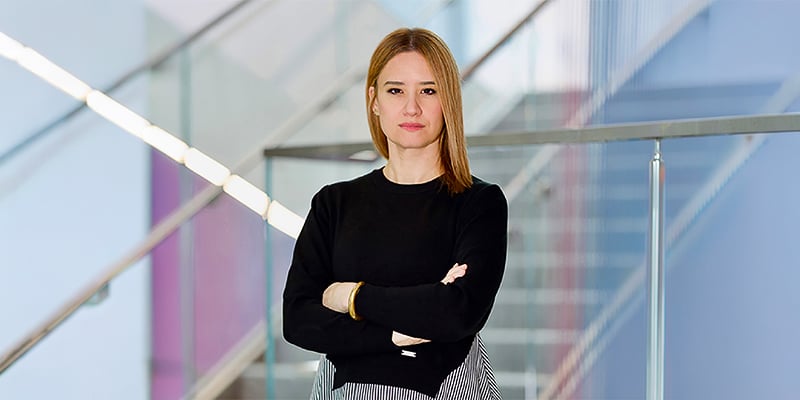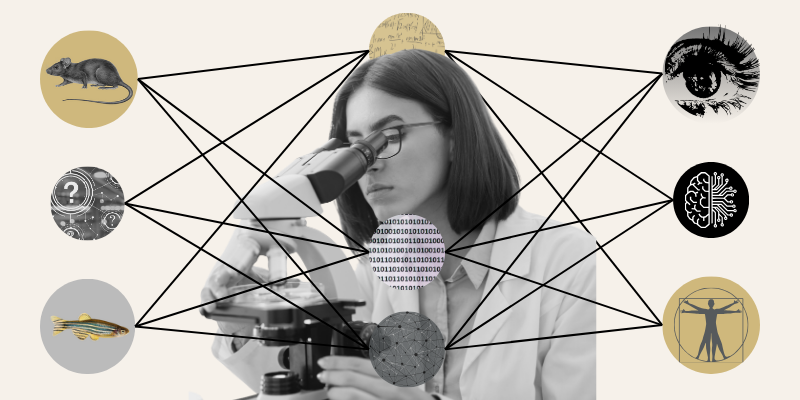Artificial intelligence (AI) transforms how medical professionals diagnose and treat patients, leading to advancements in research and patient outcomes.
This was a key throughline at the 12th annual CU-CSU Summit on Aug. 13, which brought together experts from the University of Colorado Anschutz Medical Campus (CU Anschutz), the University of Colorado Boulder (CU Boulder), the University of Colorado Denver (CU Denver), and Colorado State University (CSU). The Colorado Clinical and Translational Sciences Institute (CCTSI) hosted the event at the CU Anschutz Medical Campus.
Faculty and trainees from the Department of Biomedical Informatics (DBMI) at the CU School of Medicine (SOM) were featured in several sessions throughout the day. They discussed how their research is being implemented locally, nationally, and globally and its impact on patients worldwide.
Real World Impact at DBMI
Tell Bennett, MD, MS, professor of biomedical informatics and pediatric critical care, was selected to share an update on how CU Anschutz uses AI to impact patient care. He recounted his experience as part of a diverse international research team of 35 individuals from 12 countries and six continents to employ machine learning in developing new criteria for pediatric sepsis, bridging the gap between criteria in adults and children.
Due to higher fatality rates of children with sepsis in low-resource settings, Bennett’s team needed to develop useful criteria for any location. In addition to the U.S., the study included data from Bangladesh, China, Colombia, and Kenya, locations not consistently represented in international studies. The team analyzed data from over three million electronic health record encounters using machine learning methods.
Earlier this year, Bennett and the international team introduced the new criteria for diagnosing sepsis in children, which measure respiratory, cardiovascular, neurologic, and coagulation dysfunction. He shared that he used these new criteria at the ICU last week.
The criteria are currently being used in the background at Children’s Hospital Colorado and Lurie Children’s Hospital of Chicago. Bennett’s team will collect data over the next several months to ensure the criteria operate effectively throughout each patient’s stay. Later this year, Bennett will partner with clinical teams and various departments to integrate the criteria into their workflows. They are also beginning to test a mobile app designed for use in low-resource settings.
Innovative Healthcare
In addition to Bennett’s presentation, several DBMI members were featured throughout the event, including:
- Jade Young, a predoctoral trainee in Fan Zhang’s lab, participated in the lightning round, a series of five-minute presentations on various topics. She discussed CellPhenoX, a machine-learning method using single-cell multi-omics to predict clinical phenotypes.
- Antonio R. Porras, PhD, assistant professor of biostatistics and informatics at the Colorado School of Public Health, shared his team’s research designing artificial intelligence methods to specifically address the existing research challenges in our current understanding of pediatric and developmental pathologies.
- Jayashree Kalpathy-Cramer, PhD, professor of ophthalmology, closed the event with a presentation on research, AI, and patient care that highlighted several DBMI projects like a new workflow in Manubot that uses AI to review and improve research manuscripts developed by the Department of Biomedical Informatics chair Casey Greene, PhD, professor and Milton Pividori, PhD, assistant professor of biomedical informatics.
DBMI and CU Anschutz ensure successful AI outcomes through collaboration on campus and across the state. The CU-CSU Summit demonstrated how Colorado institutions work together to tackle the most pressing issues in healthcare.

.jpg)

.png)
